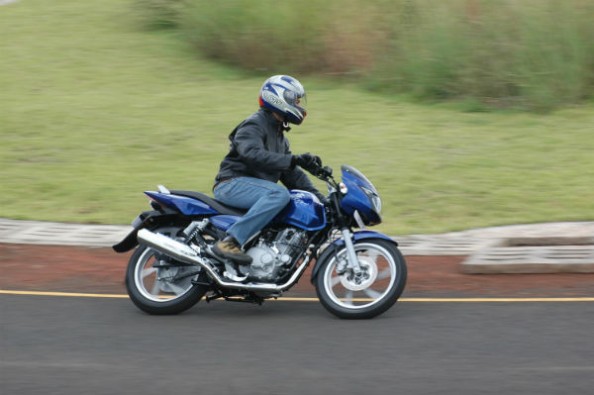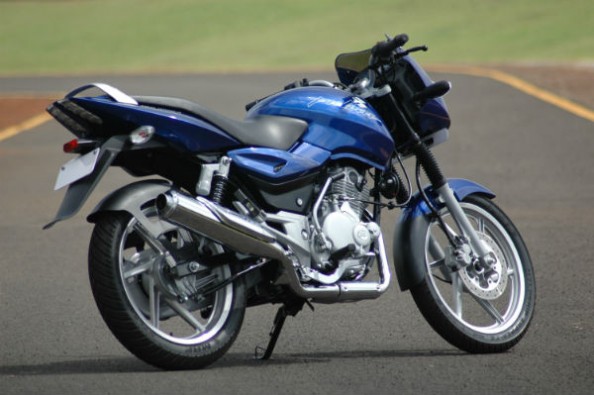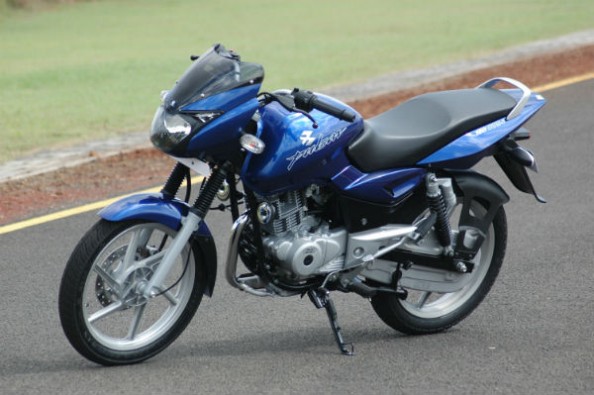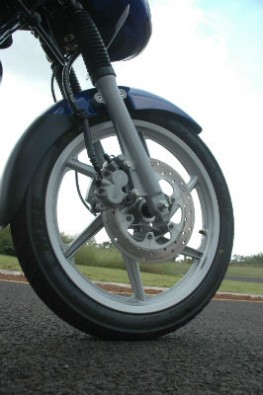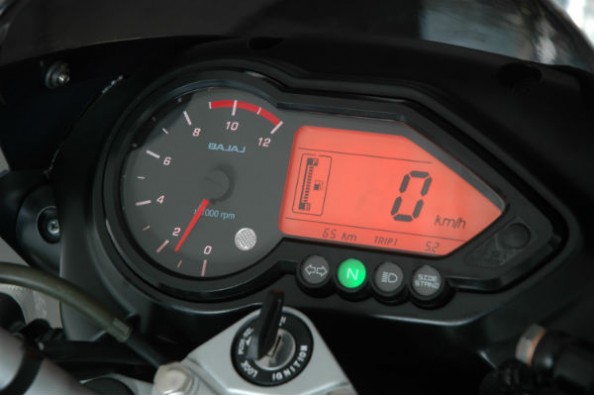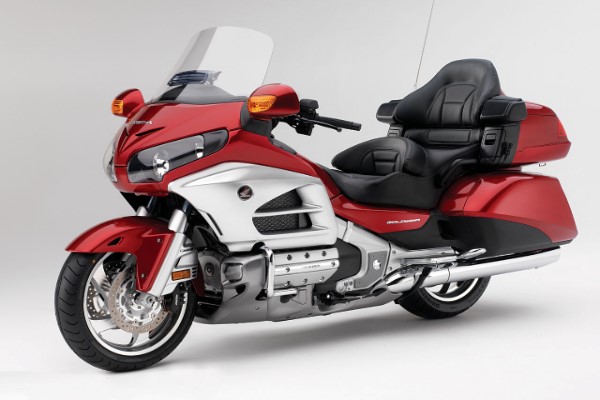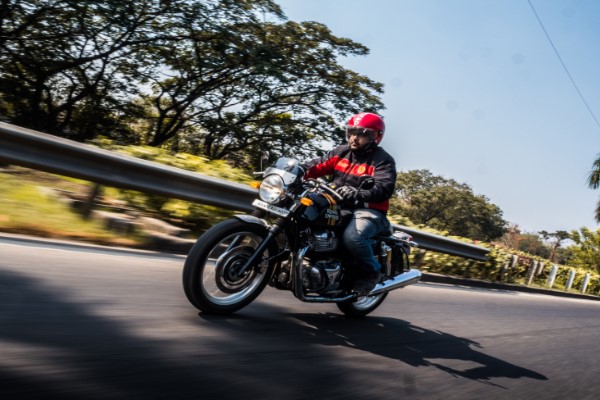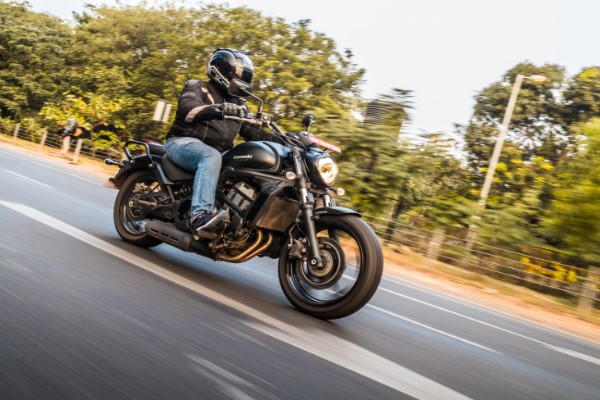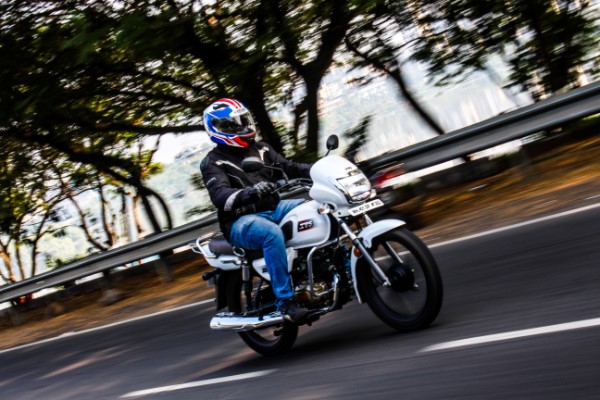The Pulsar 150 series has been a major sucess for the company. And Bajaj isn’t one to sit back and rest on its laurels, it launched an updated version of its popular 150, which is the bike you see here.
On the outside
The bike is instantly identifiable as the 150. The front has been capped by a unique, striking new bikini fairing, which looks great from any angle. Peeping out from under the fairing bubble is the familiar, sporty instrument layout. This is set above a better-finished triple clamp section. A new rubberised section prevents the ignition keychain scratching the metal.
Save for a new DTS-i decal and rear number-plate illuminator-cum-reflector on the tail fairing section, the two bikes are, more or less, similar at the rear. The seat has been modified slightly, and has a more pronounced hump between the rider and pillion now. The other major visual difference is a new silencer unit.
Sadly, the old bike’s uncomfortable handlebar grips have stayed. Other eccentricities carried over from the old bike are the narrow seat, which isn’t the most comfortable on long rides, the tank knee-recesses that do not accommodate the taller rider, and the small, ineffective rearview mirrors.
Move away from these, though, and there is a lot to praise - the switchgear, carried forward from the old bike, remains flawless and the all-new headlamp unit is just about perfect.
Power Torque
The basic platform of this engine remains the same, but the new DTS-i engine feels vastly different from its older sibling, and the performance figures prove it is a different animal altogether. This engine shows off its superiority in delivering more from less — a leaner mixture yet an increased power output of 14hp at 8500rpm. Peak torque is now 13.4Nm at 6500rpm. The gearbox is now a six-speed and clutch feel is positive, if only just a wee bit sharp in its release. Were it a little more progressive in action, life would be easier while riding in the city.
The five-speed heel-and-toe operated gearshift, disappointingly, retains its all-down shift pattern, which would have done better as a one down/four up. Performance is now crisp and most praiseworthy: the bike goes from rest to 60kph in 5.66 seconds and further on to 100kph in 22.82 sec, both of which are improvements on the previous edition. The updated engine feels sportier in nature, and is more user friendly than the one it replaces.
From behind the saddle
The 150 DTS-i retains the same sporty riding position as the old Pulsar, but that’s where the similarities end. The ride is far better now - the bike now feels plusher, more comfortable, offers higher grip, and is generally less trick and more treat. Even the less experienced rider will be able to push this bike farther into its handling envelope than he would the older edition.
The DTS-i is very stable, corners brilliantly, is wonderful to flick around and steers absolutely plumb. Braking is sure footed and we managed to stop from 60kph to rest in a fraction above 16 metres. You’d expect a slight drop in fuel efficiency seeing how much more powerful the new bike is, but thankfully, that's not the case.
Is it worth the money?
Even though the DTS-I is an updated Pulsar, it feels like a completely different bike. With its peppy engine and neutral, praiseworthy handling is now perfectly capable of attracting the attention of true-blue sports bikers, yet it fits the bill for the slightly up-market commuter thanks to its impressive fuel efficiency. The update bike is more approachable yet a better handler, more powerful, yet with no compromise on fuel economy. Bajaj has done well with this update.
